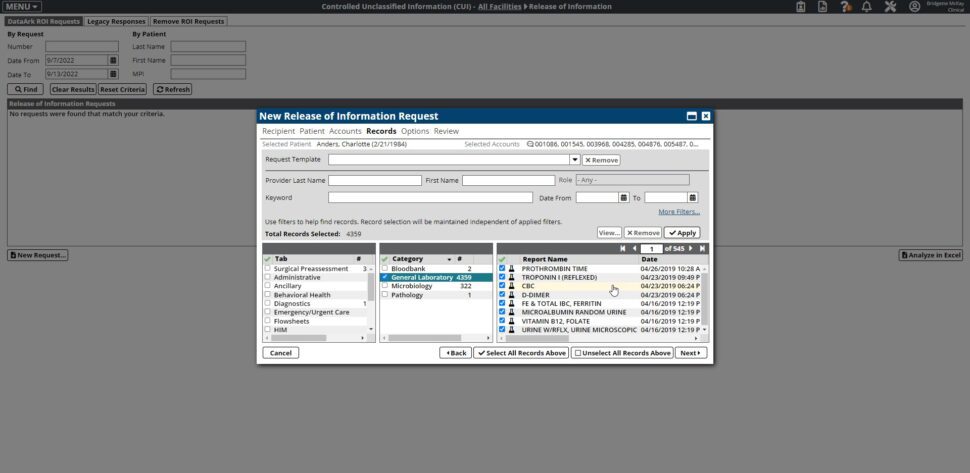[ad_1]
Amid swirling accusations that Medicare Advantage Organizations (MAOs) are overbilling the U.S. government and calls for better oversight, the Centers for Medicare & Medicaid Services announced in early February that it might examine overbilling by these plans. They anticipate to recoup 4.7 billion dollars by way of this program.
This text focuses on the comparatively younger applied sciences that allow CMS to uncover overbillings, whether or not they be errors or fraud. The article relies on an interview with Kel Pults, chief medical officer and vp of MediQuant. A future article will clarify how Medicare Benefit plans are attempting to bettering knowledge assortment and reporting, and the way AI helps.
Challenges of Investigating Overpayments
Undeserved funds are needles lurking within the haystack of 135 million Americans enrolled in Medicare, Medicaid, and the Youngsters’s Well being Insurance coverage Program (CHIP). However the needles pile up quick. Improper funds for Medicare alone have been estimated to be $43 billion for a single year.
Typical fee-for-service funds, which reimburse a physician for every go to or different intervention, are arduous sufficient to analyze. It’s even more durable to find out funds for extra open-ended fee-for-value plans, which embrace Medicare Benefit.
Medicare Benefit packages are reimbursed on the idea on how a lot they’re anticipated to spend on a affected person. An individual who has smoked for 60 years and is identified with congestive coronary heart failure and diabetes is anticipated to value the plan more cash than knowledgeable dancer who has maintained an lively life fashion. The distinction between these conditions drive variations in per-patient CMS reimbursements, that are known as “risk-adjusted funds.”
However how sick is a affected person, actually? There are many methods to make sufferers appear sicker than they are surely by exaggerating components of their histories.
At the moment, Pults instructed me, CMS is specializing in overbillings throughout the top of the COVID-19 pandemic. Though the recent CMS rule doesn’t point out COVID-19 explicitly, the disaster round that pandemic supplied a brand new loophole for Medicare Benefit plans to extract undeserved reimbursements.
Suppose again to the peak of pandemic, particularly pre-vaccine. In 2020 and 2021, medical doctors, nurses, and different workers risked their lives hourly to deal with sufferers who had COVID-19, typically with out figuring out who had it. To supply incentives for each the front-line workers and the medical establishments using them, CMS supplied bonuses, or add-on payments, for treating sufferers who had the illness.
In brief, a affected person who died of COVID-19 received the next reimbursement than one who died of most cancers, even when the cash expended by the clinician and payer on the 2 victims was comparable.
The add-on cost created an unlucky incentive to mark a affected person as a sufferer of COVID-19 once they weren’t actually. If a affected person was admitted to a hospital for COPD or most cancers and was subsequently discovered to have COVID-19, they shouldn’t set off an add-on cost as a result of the “main explanation for loss of life” was COPD or most cancers. However typically, the suppliers and plans reclassified the sufferers as COVID-19 victims so as to get the add-on funds. This was notably ironic if the affected person developed COVID-19 on account of getting into the hospital for a unique situation.
How can such overpayments be uncovered? One has to intensively study the prognosis and selections main as much as the unique hospital admission. It’s unfeasible to assessment each hospital admission for 2020 and 2021, so CMS wanted superior computing instruments to decide on suspicious deaths.
Deciding on Funds to Examine
For twenty-four years, MediQuant has supplied a cloud knowledge service to healthcare organizations that it calls an “lively archive.” The archive is a layer above generic companies corresponding to Amazon’s S3, offering an interface to retrieve and search outdated medical knowledge. Determine 1, as an illustration, reveals a display screen providing numerous sorts of data on a affected person.

Determine 1: New Launch of Info Request
The duty of figuring out what actually brought about a affected person loss of life entails looking out a number of histories, every of which might be manufactured from up completely different sections saved in numerous paperwork. Every related merchandise, corresponding to an important signal, could be saved individually. As an illustration, one pink flag calling for a assessment is that if COVID-19 is listed as the first explanation for loss of life and one other was listed as secondary.
Legacy document programs add further fragmentation to the data. Pults mentioned that certainly one of their purchasers had 250 legacy programs.
MediQuant can use machine studying to seek out the relationships amongst all these scattered details, search for specific prognosis codes, and verify sure parameters to slim down what to assessment out of hundreds of thousands of data. Pults says their service can assist CMS in monitoring down the billions which can be owed to the U.S. public in overpayments.
Get Recent Healthcare & IT Tales Delivered Day by day
Be part of hundreds of your healthcare & HealthIT friends who subscribe to our each day e-newsletter.
[ad_2]
Source link



